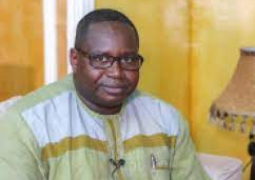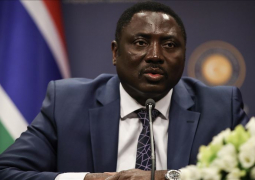
Seedy M.K. Keita, the minister for Finance, told journalists that the SOE has an asset of D34 billion yet asking for government financial support. He added that the role of the commission is to support the SOEs and their management.
Minister Keita thanked the President for his support and guardianship towards reforms in general and SOE in particular. He noted that the president is very supportive of the reform agenda and has been calling for more reforms.
“We believe that the SOE commission together with the managing directors will be able to rise to the challenge for reform. The government of the Gambia in its commitment to enhance financial stability initiated this reform. We are supported by the World Bank and the International Monetary Fund.”
He continued: “Key among the reform agenda is the establishment of a state-owned enterprise directorate which has now evolved into the State Owned Enterprise Commission. The role of the commission is not to parade the management of the SOEs before a camera as Gambians are familiar with commissions, but to provide an essential and crucial oversight in matters of governance and financial management. It’s not a witch hunt and there will be no oral evidence to give before any Camera. The commission is set up to oversee groups of boards.”
He reiterated that with the amount of resources deployed and the expected service delivery, if the objective of the commission is realized, it would be positive for the country.
Ousainou Ngum, chairman of the SOE Commission said by looking at the data that is available, the SOEs as they currently stand, constitute a significant fiscal market and government risk. Between 2016 and 2020, he explained that the SOEs through direct transfers and subsidies have had an impact of 1% of GDP.
“If you translate that in 2023, GDP is projected at 2.36 billion US dollars. In dollar terms, 1% would be 23, 900, 000 which is 1.5 billion dalasis. We do not work to slow that down,” he said.
Chair Ngum further revealed that SOEs have an investment from the government with over D30 billion, saying in an ordinary sense, if one invests 30 billion, one would expect a return. He said investing 30 billion and ending up with a net situation where you still support that investment is not a situation that can continue and is not sustainable for the government.
“As commissioners, we have a task to at least, in the first few years of our operations demonstrate that there can't be a slowdown. As a chair of a bank, I do see SOE operations within the broader economy in terms of liquidity and I have for a long time asked myself why SOEs are not financially sustainable. I dare to say that 30% of liquidity in this economy is driven by SOEs and there can be significant improvement. The commission is not to punish the SOEs but to work with them and understand their context and reality,” he stated.
On the economic side in terms of market, he dwelled that the SOEs are very diverse in their compositions and some of them are openly competing in a commercial market that poses a challenge. He said some of them are natural monopolies and that also poses problems in a different set.
In terms of governance, he added that SOE governance has been inherently difficult while reiterating that over the years, governance has not been given the attention it deserves.
Read Other Articles In Headlines





